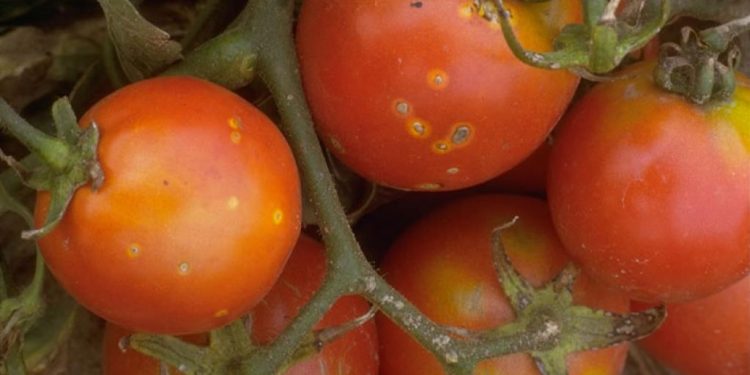Bacterial canker disease is considered to be one of the most destructive diseases of tomato (Solanum lycopersicum), and is caused by the seed-borne Gram-positive bacterium Clavibacter michiganensis ssp. michiganensis (Cmm). This vascular pathogen generally invades and proliferates in the xylem through natural openings or wounds, causing wilt and canker symptoms. The incidence of symptomless latent infections and the invasion of tomato seeds by Cmm are widespread. Pathogenicity is mediated by virulence factors and transcriptional regulators encoded by the chromosome and two natural plasmids. The virulence factors include serine proteases, cell wall-degrading enzymes (cellulases, xylanases, pectinases) and others. Mutational analyses of these genes and gene expression profiling (via quantitative reverse transcription-polymerase chain reaction, transcriptomics and proteomics) have begun to shed light on their roles in colonization and virulence, whereas the expression of tomato genes in response to Cmm infection suggests plant factors involved in the defence response. These findings may aid in the generation of target-specific bactericides or new resistant varieties of tomato. Meanwhile, various chemical and biological controls have been researched to control Cmm.
Photo: EPPO (2024) EPPO Global Database. https://gd.eppo.int
Reference: Nandi, M., Macdonald, J., Liu, P., Weselowski, B. and Yuan, Z.-C. (2018), Clavibacter michiganensis ssp. michiganensis: bacterial canker of tomato, molecular interactions and disease management. Molecular Plant Pathology, 19: 2036-2050. https://doi.org/10.1111/mpp.12678










